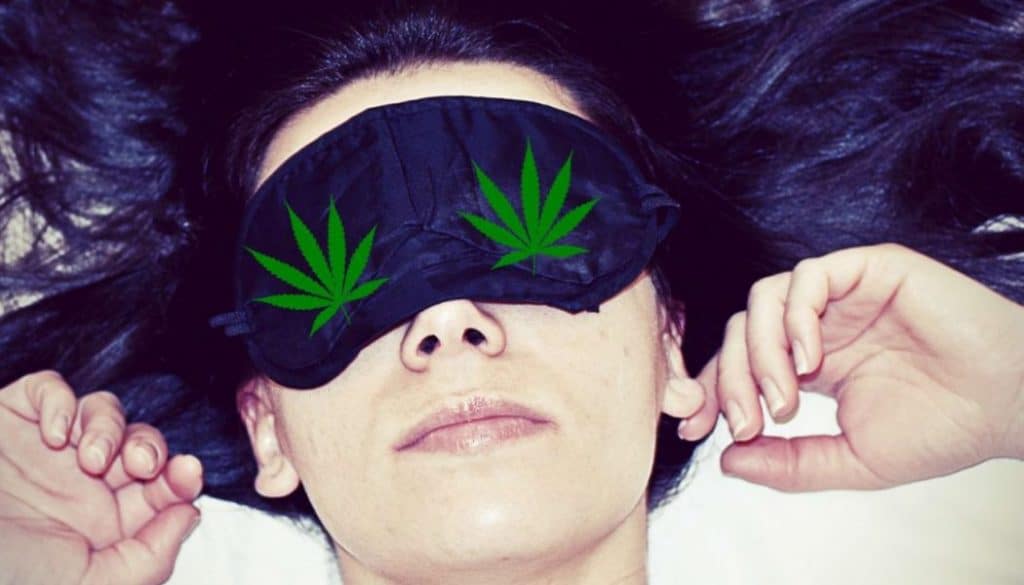When & How to Take CBD for Sleep-Related Problems
Do you constantly feel tired and worn down? Or maybe you’re having trouble falling or staying asleep? You’re not alone. About 80 million Americans suffer from a sleep disorder such as insomnia and sleep apnea. Using CBD for sleep apnea and CBD for insomnia is a hopeful alternative.
Conventional pharmaceutical sleep aid medications and over-the-counter drugs have certainly been the go-to in our culture. But with the high rate of dissatisfaction over their side effects, there’s been a recent uptick of organic alternatives. Cannabidiol (CBD) is one natural solution gaining traction.
So why are people using CBD for sleep difficulties? What does current literature say about how curtails nighttime sleeplessness and stimulates daytime alertness?
Discover the intricacies of how CBD helps you wind down and fall asleep without feeling groggy the next day. In this article, we’ll cover survey results and quantitative research on the:
- Impact of CBD on the sleep-wake cycle and sleep disorders.
- Best ways to take CBD for sleep and daytime wakefulness.
Quick Rundown on CBD
CBD is a safe, non-intoxicating and non-habit-forming cannabinoid found in the marijuana and hemp plant. It works by stimulating our body’s endocannabinoid system to promote natural homeostasis.
Just a few of its therapeutic benefits include:
- Regulating the sleep-wake cycle.
- Reducing pain, inflammation, stress and anxiety.
User Experience of CBD and Sleep Behavior
According to a recent Consumer Reports survey of 1,267 U.S. adults:
- Nearly 80% of American adults struggle with sleep-related issues at least once per week.
- 10% of American adults use CBD for sleep troubles.
Another recent study of 1,047 adults concluded similar findings on the benefits of CBD for sleep. 46% of survey respondents reported improved sleep quality from using CBD. And out of the participants who said they vape or smoke marijuana, nearly 51% reported doing so to achieve sleep-related goals.
What Science Says about CBD for Sleep
Let’s dive into what the research says about the following topics related to CBD and sleep:
- CBD for Short-Term Sleep Problems
- CBD for Insomnia
- CBD for REM Sleep Behavior Disorder
- CBD for Sleep Apnea
- CBD for Daytime Fatigue
- Impact of Pain-Reducing Properties of CBD on Sleep
CBD for Short-Term Sleep Problems
A study published this year exploring CBD for sleep and anxiety in a clinical population consisting of 72 adults found that CBD helped to improve sleep scores within the first month in 67% of patients.
Even more pronounced was the benefit of CBD for anxiety, which can delay and/or interrupt sleep. In the study, anxiety levels decreased within the first month for 79% of patients and remained decreased for the 3-month study duration.
CBD for Insomnia
A novel study published in the journal Medicines used a mobile software application to track and measure the effectiveness of different cannabis products in relieving the severity and side effects of insomnia under normal circumstances in real-life, everyday environments.
The findings indicate that the more CBD, the greater insomnia symptom relief. Products with higher CBD levels and lower THC levels:
- Increased sleep quality and amount.
- Decrease drowsiness, concentration difficulties, and memory impairment.
A much earlier investigation into the hypnotic and relaxation effects of CBD on healthy individuals and people suffering from insomnia provide some insight into on the recommended doses of CBD for insomnia.
Volunteers suffering from insomnia who received 160 mg CBD reported having slept significantly more than the other treatment groups. Healthy folks with normal sleep-wake cycles didn’t seem to benefit from the use of CBD for sleep.
CBD for REM Sleep Behavior Disorder
A recent study examined 4 male patients with Parkinson's disease (PD) movement disorder along with associated REM sleep behavior disorder. The researchers found that CBD reduced the frequency of the events related to REM sleep behavior disorder including REM onset latency and disruption.
This results confirmed previous research on CBD and sleep. But in a follow-up study examining normal REM cycles in healthy subjects, both CBD and a placebo didn’t impact REM behavior.
Together, these findings suggest that CBD is effective in ameliorating abnormal sleep-wake cycles and REM behavior but doesn’t interfere with “normal” REM behavior.
CBD for Sleep Apnea
CBD helps to regulate the central and peripheral nervous systems, which seems to relieve symptoms of sleep apnea.
Sleep apnea is a potentially life-threatening sleep disorder characterized by the repeated starting and stopping of breathing during sleep. People with sleep apnea often snore loudly and are constantly tired even after a full night's rest. The most common form of sleep disorder, obstructive sleep apnea, occurs when throat muscles relax.
About half of patients benefit from CBD for sleep apnea relief based on a clinical study conducted a few years ago. The researchers concluded that effectiveness of CBD for sleep apnea may lie in its ability to enhance the movability of upper airway muscles and prevent airway obstruction.
CBD for Daytime Fatigue & Alertness
CBD in small doses behaves as a daytime wake-promoting agent by boosting alertness and minimizing chronic fatigue when the sun is out. Extensive sleep-wake laboratory results suggest CBD has a mild activating effect compared to THC-predominate and balanced 1 CBD:1 THC sleep medications.
CBD is able to modulate daytime sleepiness and alertness by activating two wake-inducing brain areas (the hypothalamus and dorsal raphe nucleus) when it’s light out.
Given its daytime waking properties, CBD may be particularly helpful for excessive drowsiness, lethargy and daytime sleepiness by improving daytime performance and the consistency of the sleep-wake cycle.
CBD is also tied to increased levels of noradrenaline, epinephrine, dopamine, and serotonin, which may interact synergistically to attenuate daytime sleepiness. But further investigation into the neurobiological mechanisms by which CBD affects the sleep-wake cycle is needed.
Impact of Pain-Reducing Properties of CBD on Sleep
The role of CBD in alleviating pain and inflammation has been accepted for quite some time. Just as well-established is the relationship between the reduction of pain and improved sleep. Many cancer patients and folks with chronic pain, for example, use CBD for both pain and sleep-related purposes.
Sativex, an oral spray containing both CBD and THC, has also been used to reduce pain caused by multiple sclerosis, peripheral neuropathic inflammation, cancer, arthritis and a variety of other pain conditions.
One of the marked benefits of the medication is improved quality of sleep and life, per subjective sleep parameters, which seems to continue over time without needing to increase the dosage.
The impact of the cannabinoid pain medication on sleep quality suggests that CBD plays both a direct and indirect role in modulating sleep.
THC vs. CBD for Sleep
Compared to CBD, delta-9 tetrahydrocannabinol (THC) is useful as a therapeutic remedy for sleep latency according to a study published in the journal Current Psychiatry Reports.
But although THC is helpful in shortening or “normalizing” the amount of time between sleep onset and entering your first deep rapid eye movement (REM) cycle, THC may negatively impact long-term sleep quality.
But in comparison to THC, CBD has proven to be a much more promising long-term solution for:
- REM sleep behavior disorders and insomnia
- Excessive daytime sleepiness and chronic fatigue
- Sleeping difficulties stemming from pain conditions
What’s the Best Way to Take CBD for Sleep-Related Problems?
Depends on what you’re looking for. Are you interested in the easiest way? The most potent? The healthiest? Or maybe you’re interested in the tastiest an/or most fun way to take CBD? We’ve picked out a winner for each of these categories and more.
Sublingually
is arguably the easiest (and healthiest) way to take CBD. It’s as simple as putting a few drops of CBD oil underneath the tongue and holding it there for a minute or so. The CBD oil then efficiently gets into the bloodstream through the sublingual tissue and pumped throughout the body. The body relaxing effects of CBD oil are typically felt within 5-20 minutes.
Inhalation -
may be the quickest and most powerful, yet short-lived way to enjoy the benefits of CBD for sleep. That’s because when you inhale CBD oil or cannabis flower, the CBD is quickly recognized by our highly protective blood-brain barrier and the effects are felt almost instantly.
Compared to smoking a joint, using a vaporizer or smoking from a pipe -
provides greater insomnia relief and more pleasant side effects per a study exploring CBD and insomnia treatment.
Vaping may be the most health-conscious way to inhale CBD -
oil or flower for sleep-related conditions. When you vape cannabis flower, you don’t send heat, ash, and tar through the airway because you inhale just the vapor.
CBD transdermal patches are designed to last throughout the day.
Patches deliver a controlled daily amount of CBD, lasting much longer than other CBD products. Because transdermals have to pass through the skin, the effects take about 20-40 minutes to kick in.
CBD pills, droplets and edibles may help you sleep longer because they’re released over time.
Because CBD has to go through the digestive system when using these delivery methods, it takes longer to get into the body and is slowly dispersed. But the effects are not as potent as, say, an inhalation or sublingual method. If you want to use an oral CBD consumption method, it’s probably wise to do so about an hour before bedtime.
CBD oil-infused tea may be a tastiest and healthy way to consume CBD.
You can also get creative with CBD oil teas by adding herbs, spices, and supplements for sleep and flavor.
CBD for Sleep Disorders & Fatigue: Closing Remarks
The importance of sleep is irrefutable. Based on research from the Center for Disease Control, people who sleep less than 7 hours a day are more likely to suffer from depression, arthritis, diabetes, heart problems, stroke, asthma, and other chronic health conditions.
When used strategically over time based on the natural sleep-wake cycle and your specific situation, CBD may be an effective way to mitigate the impact of sleep deprivation and poor sleep quality.
If you’re considering using CBD for sleep-related issues, it’s best to ask your medical marijuana doctor about drug interactions, the sleeping symptoms you’re experiencing, and dosage information.
Talking with your doctor about CBD for sleep apnea or sleep-wake consistency is especially important considering the unique way the cannabinoid produces wakefulness and alertness during the day while combating insomnia at night.
Interested in trying CBD for natural sleep-wake promotion?
Get in touch with a medical marijuana doctor today at 786.953.6838.



Comments are closed.